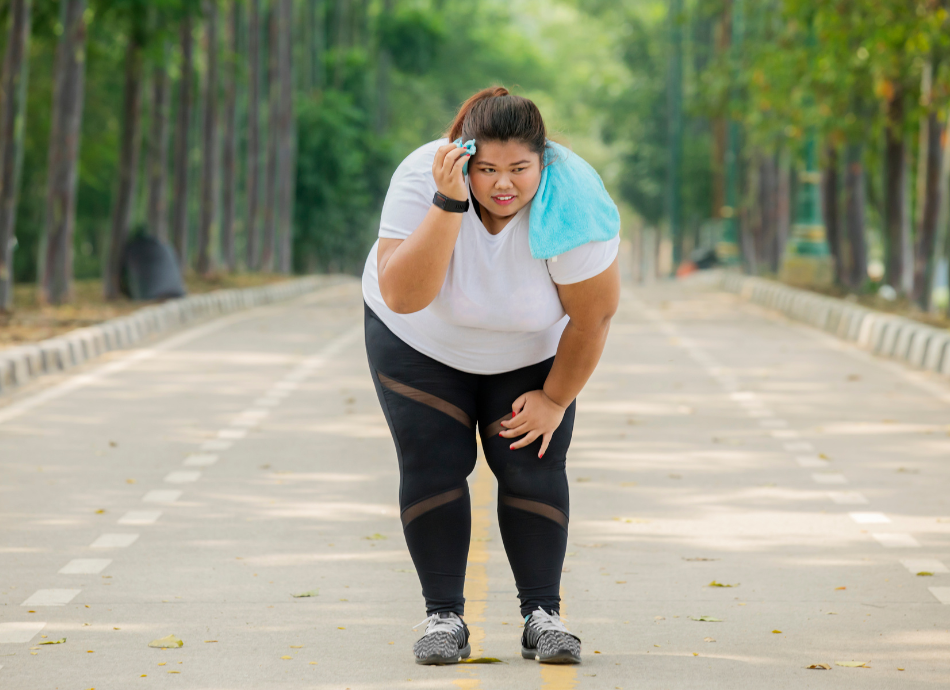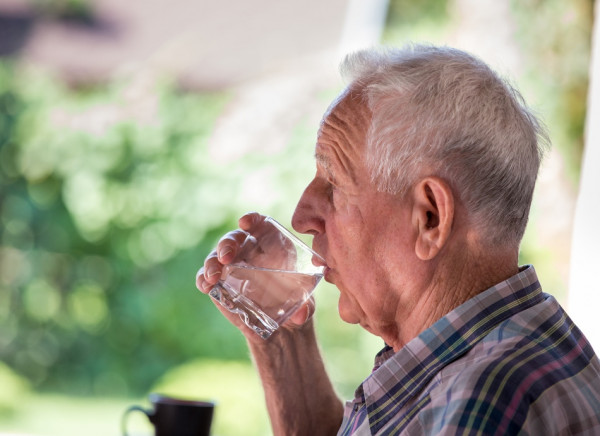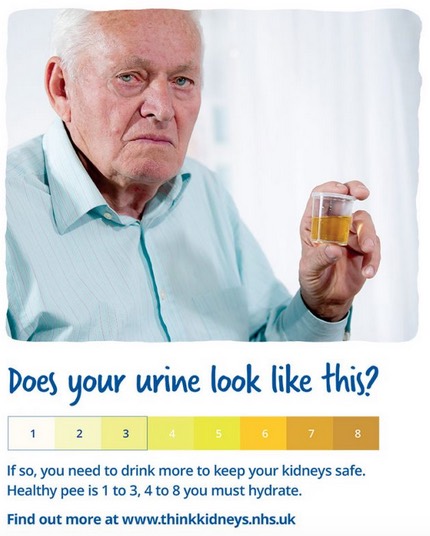If you're a frequent visitor to Healthify, why not share our site with a friend? Don't forget you can also browse Healthify without using your phone data.
Dehydration in adults
Key points about dehydration in adults
- Dehydration is the loss of water from your body – feeling thirsty is a sign you need more water.
- Most people experience mild dehydration at some time, but if it becomes severe it can lead to death.
- Mild dehydration can be treated by drinking small amounts of water frequently.
- Babies, older adults and people who work outside are most at risk of severe dehydration. If dehydration is severe, seek urgent medical help or call Healthline 0800 611 116.

Dehydration is what happens when you lose more water from your body than you take in. It can easily happen if you're unwell, exercising or working physically, sweating, taking a medicine that makes you pee a lot or just not drinking enough water to keep your body functioning normally.
Your body’s first response to being dehydrated is to make you feel thirsty and it’s important to respond to this by drinking fluid, preferably water.
Why is it important to be well hydrated?
Most of your body is made up of water and it’s needed for your body to work properly. Functions of your body needing water include:
- digestion and kidney function – getting rid of waste (poo and pee)
- creating saliva
- movement of joints and bones
- balancing chemicals
- transporting oxygen around your body
- regulating body temperature
- skin health
- protecting your brain, your spinal cord and a baby in the womb.
Dehydration is when you don't have enough body fluids for your body to carry out normal functions easily. The amount of water in your body depends on your sex, age and weight but more than half of everyone’s body is made up of water. Different parts of your body contain different amounts of water – the most found in your blood (about 90% water), the least in your bones (about 30% water).
Your body uses water to replace blood and other fluids so it can function properly. As well as water, your body also needs electrolytes. These are salts normally found in blood, other fluids and cells. These salts are important for keeping water in the right places in your body.
You can survive without food for more than 30 days, but less than a week without water.
Common causes of dehydration
- Diarrhoea (runny poo) and vomiting (being sick).
- Having a fever (high temperature).
- Not eating or drinking while you’re sick.
- Being outside in very hot conditions.
- Not drinking enough before, during or after hard exercise or heavy work.
- Some health conditions such as kidney disease or diabetes – these cause you to urinate (pee) more often.
- Some medicines such as water pills (diuretics) – these can cause your body to lose water.
- Even having a cold or sore throat – because you're less likely to feel like eating or drinking when you're sick.
- Drinking too much alcohol, because alcohol is a diuretic (makes you pee).
You may have heard that caffeine is a diuretic but, although it can make you urinate (pee) more often, caffeinated drinks don't make you dehydrated. So, although water is best to drink, it's fine to drink tea and coffee for hydration.
Mild dehydration
For healthy people, the best way to know that you are mildly dehydrated and need more water is if you feel thirsty. You might also notice your urine is a darker colour.
Moderate dehydration
If dehydration continues it becomes moderate, with signs and symptoms including:
- a dry, sticky mouth and tongue
- a headache
- feeling lightheaded or dizzy
- weakness
- muscle cramps
- loss of appetite
- feeling very tired – no energy
- sunken eyes
- peeing (urinating) less than usual
- dark yellow pee (see the urine chart below).
Severe dehydration
As dehydration becomes worse, symptoms and signs become severe with:
- dry, flushed skin
- not peeing for 8 hours or more
- not being able to control your body temperature
- fainting
- fast heart rate
- confusion
- unconsciousness.
If you have signs of moderate or severe dehydration, see your healthcare provider or an after-hours clinic immediately or call 111 for an ambulance. |
If you don’t replace the fluid your body needs to keep functioning properly there may be consequences. Risks of being dehydrated often or over a long time include:
- recurrent headaches
- constipation
- heat-related problems ranging from mild muscle cramps to heat stroke
- kidney problems such as urinary tract infections (UTIs) and formation of kidney stones
- seizures due to chemicals such as sodium, potassium and electrolytes being out of balance
- increased risk of blood clots and heart attacks due to your blood becoming less dilute and thicker.
Although anyone can become dehydrated, those who become dehydrated most easily are babies under 1 year of age, older adults and people who work or exercise outside.
Babies under 1 year of age
Dehydration can quickly become serious in children. If you have a child under the age of 6 months who has vomiting/diarrhoea, or whom you suspect is dehydrated, take them to see a healthcare provider right away. Young children often can't tell you that they're thirsty, nor can they get a drink for themselves. The younger the child, the easier it is for them to become dehydrated. Read more about dehydration in babies and children.
Older adults
As you age, your body's fluid reserve becomes smaller, your ability to retain water is reduced and your sense of thirst becomes less reliable. This is made worse by conditions such as diabetes and dementia, and by certain medicines. Older adults also may have mobility problems that limit their ability to get water easily. Read more about dehydration in older adults below.
People who work or exercise outside
When it's hot and humid, your risk of dehydration and heat illness increases. That's because when the air is humid, sweat can't evaporate and cool you as quickly as it normally does. This can lead to a higher body temperature and the need to drink more water.
Read more about heat stroke and heat exhaustion.
Sweat also uses up your body’s electrolytes (salts) which are replaced through the food you eat. If you work or train outdoors in the heat at high intensity for many hours you may need sports drinks or oral rehydration solutions.
Dehydration is a greater risk as you get older. There are specific reasons for this.
- You rely on the feeling of being thirsty to remind you to drink, but as you get older the ‘I’m thirsty’ signal doesn’t get through in the same way, meaning that you might forget to drink regularly. If you feel thirsty, you’re probably already dehydrated so drink extra.
- As you get older your kidneys don’t work as well and the fluid balance in your body may not be as good as it used to be.
- Less of your body is made up of water as you get older, meaning there are fewer reserves of water stored in your body. This means you need to keep topping them up by drinking frequently. If you find it hard to drink a whole glass of water, try having small amounts regularly throughout the day.
- Some medicines have a diuretic effect making your body get rid of more fluid (by peeing more) than it normally would. As you get older, you’re more likely to be prescribed a medicine that is intended to work as a diuretic (eg, if you have a heart problem) or has a diuretic side-effect (eg, some diabetes medicines). Alcohol also has a diuretic effect so drink water as well. It’s important to talk to your healthcare provider about how much fluid you should be having if you have heart or kidney disease.
- If your memory isn’t as good as it used to be you may forget to drink, or not remember whether or not you’ve had that mid-morning cup of tea or coffee. If in doubt, have another one, or better still a glass of water.
- If you have bladder problems that mean you need to go to the toilet in the night you may be choosing not to drink during the evening. Unless you make up for it by drinking more at other times of the day, you may get dehydrated.

Image credit: Canva
- Always drink plenty of water during the day, especially when you're working or exercising in the sun.
- Where possible, try to do all physical outdoor activities in the cooler parts of the day.
- Drink water before you play sport, during if possible, and after to ensure your body stays hydrated.
- Drink plenty of fluids if you have diarrhoea, vomiting or fever – see your healthcare provider if you can't keep fluids down.
- Water is best.
- Go easy on the tea and coffee – keep under 4 cups each day. They have the diuretic caffeine in them, so more than that makes you pee and can make you more dehydrated.
- Avoid high-sugar, high-calorie drinks such as undiluted fruit juice, fizzy drinks and energy drinks. They are not as hydrating as water, and drinking them regularly can lead to being overweight or obese.
- Avoid alcoholic drinks – they make dehydration worse as they make you pee more.
Mild dehydration can be treated by drinking water frequently in small amounts until you are no longer thirsty and your urine (pee) is a light yellow colour. You will usually need to drink 3 to 4 litres over 24 hours. Even if you are vomiting, some of this water will still be absorbed by your body. If you’re having trouble keeping water down, try having small sips every few minutes rather than a lot all at once. You could try sucking ice chips too.
If drinking water isn't enough to treat the dehydration, your healthcare provider or pharmacist may recommend electrolyte solutions such as Electral or Pedialyte. You can buy these from your pharmacist. Prepare them according to the instructions on the packet. Read more about oral rehydration solutions.
Moderate or severe dehydration often needs treatment in an ambulance or in hospital and may involve fluids being given intravenously (through a needle into a vein) or by a nasogastric tube (a tube through your nose into your stomach).
How much water you need depends on many factors, including your health, how active you are and where you live.
Unless you’ve been told to restrict the amount of fluid you drink, it’s suggested that you should drink 6 to 8 glasses of water a day. Research doesn’t tell us exactly how much water we need, but this is a rough guide. Another good guide is the colour of your urine (pee). It should be a very light-coloured yellow. If it’s a deep yellow, then it’s likely you’re not drinking enough water.

Image credit: NHS, UK
If you've had kidney stones, drinking plenty of water each day can lower your chances of getting another stone. You should also drink extra amounts of water when experiencing any dehydrating conditions (such as hot, humid weather, high altitudes or physical exertion).
A builder working in summer might need to drink up to 5 litres of water (or a combination of water and rehydration solution/sports drinks) a day. It's best to drink smaller amounts often, rather than a lot all at once.
6 easy ways to drink more water
- Carry a water bottle with you.
- Set an alarm or download an app to remind you when to drink more water.
- Have a glass of water before and after each meal.
- Replace other drinks with water, especially drinks with caffeine or alcohol in them.
- In winter, drink warm water with lemon, honey or mint leaves. In summer, add berries, cucumber or a slice of lemon to add flavour to plain water.
- Add to your fluid intake by eating foods that have a high water content such as jellies, yoghurt and soup.
Read more about drinking the right amount of water.
Dehydration(external link) NHS, UK
Dehydration(external link) MedlinePlus, US
References
- Dehydration(external link) Cleveland Clinic, US, 2023
- Dehydration in adults(external link) Auckland Regional HealthPathways, NZ, updated 2023
- Water it down – some key benefits of drinking water(external link) Health New Zealand | Te Whatu Ora, NZ
- What is the average (and ideal) percentage of water in your body?(external link) Healthline, US, 2019
- Dehydration – signs, causes, and tips to drink more water(external link) Heart Matters, British Heart Foundation, UK, 2024
- What to know about dehydration in older adults(external link) WebMD, US, 2023
- Drink up – the connection between age and dehydration(external link) Cleveland Clinic, US, 2023
- Dehydration(external link) Mayo Clinic, US, 2021
Nutrition and hydration(external link) Frailty care guides Health Quality and Safety Commission, NZ, 2023
Acute adult dehydration(external link) POAC Clinical Guideline, NZ, 2015
Credits: Healthify editorial team. Healthify is brought to you by Health Navigator Charitable Trust.
Reviewed by: Dr Emma Dunning, Clinical Editor and Advisor
Last reviewed:
Page last updated:





